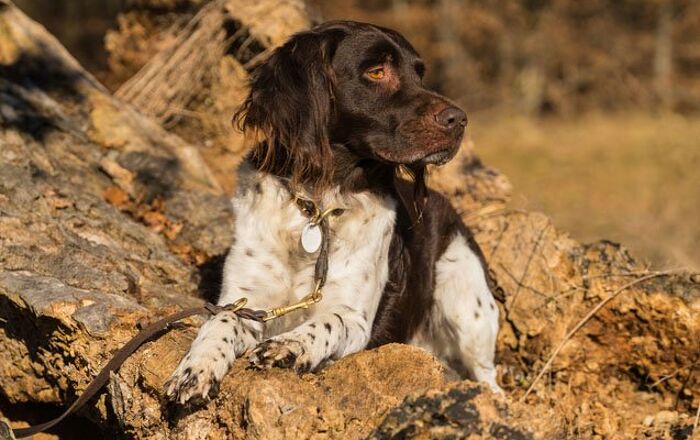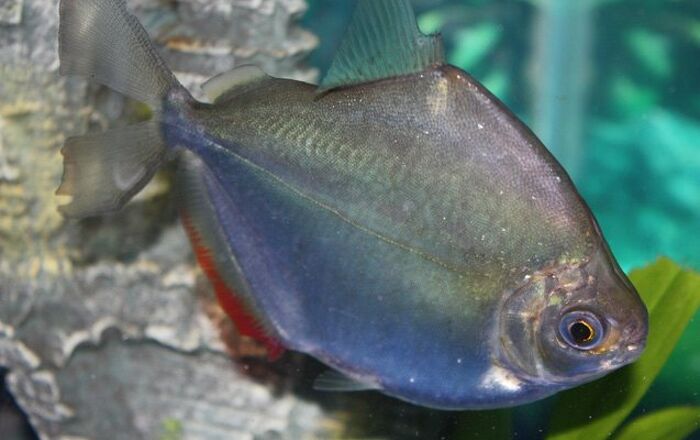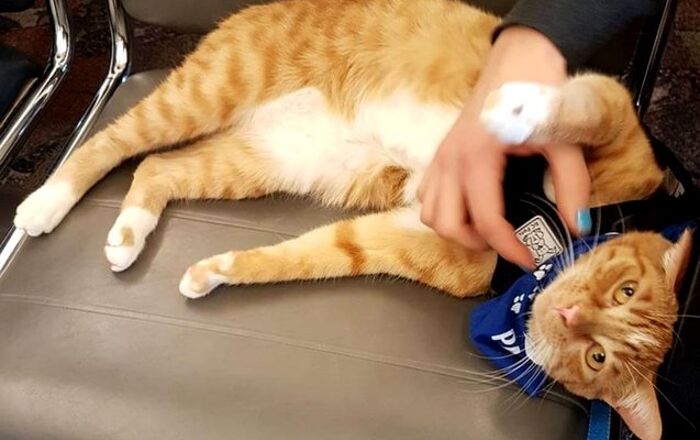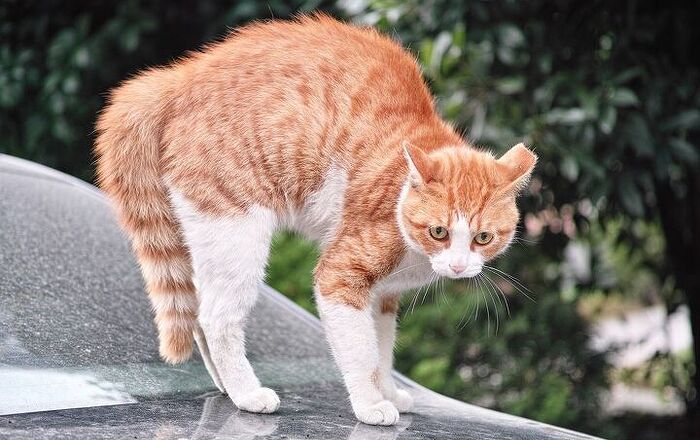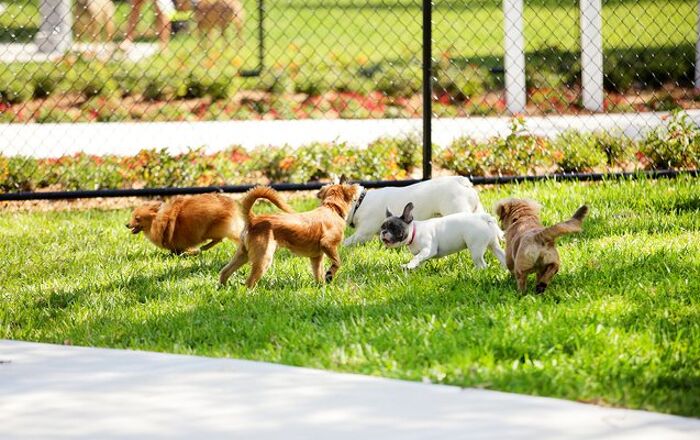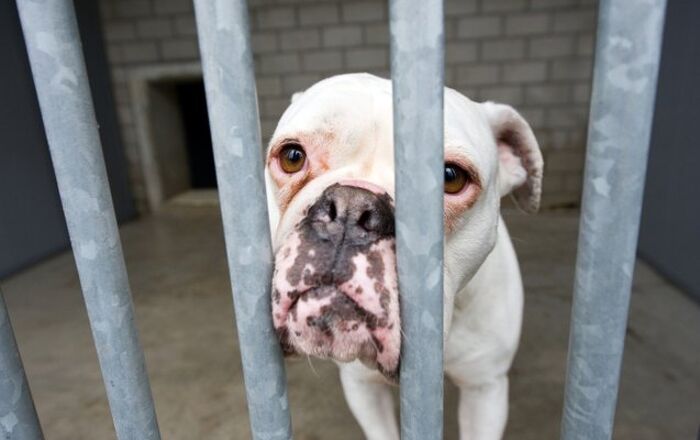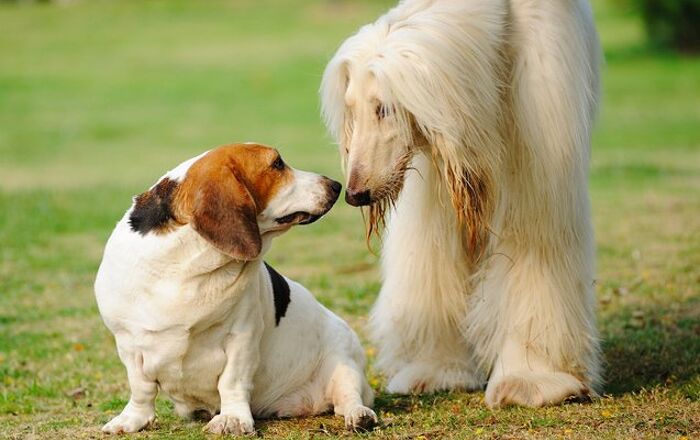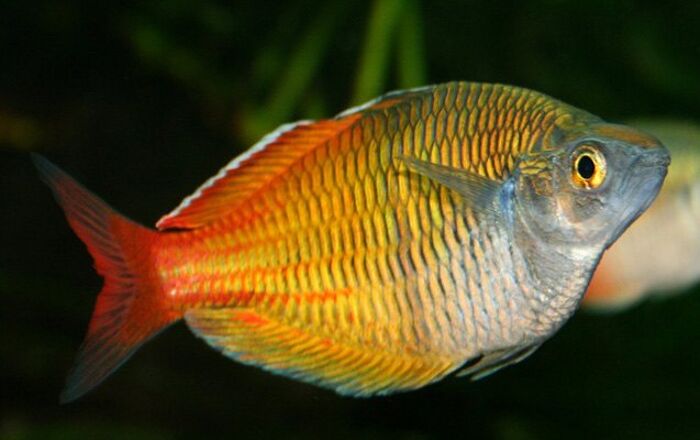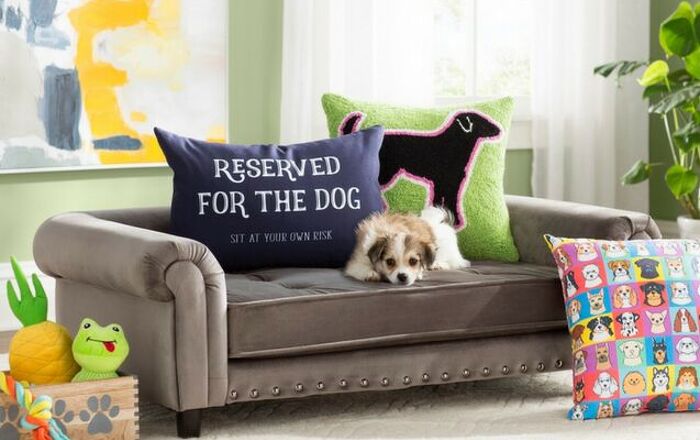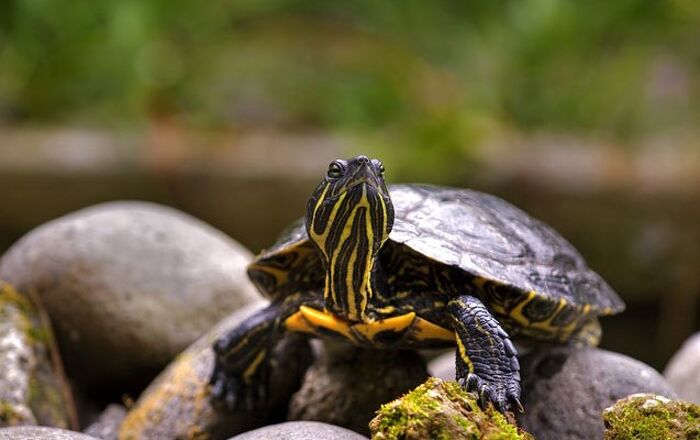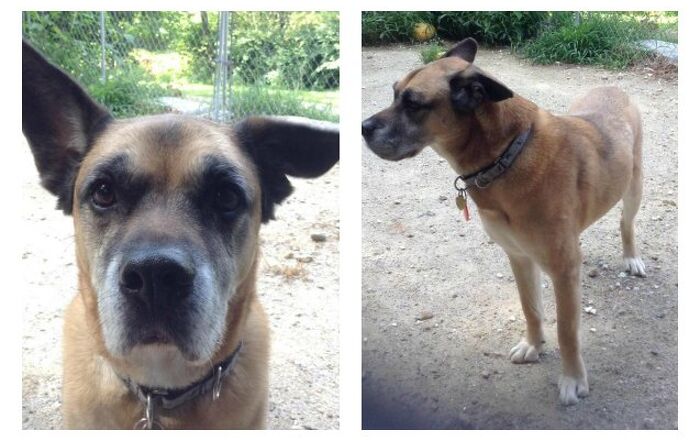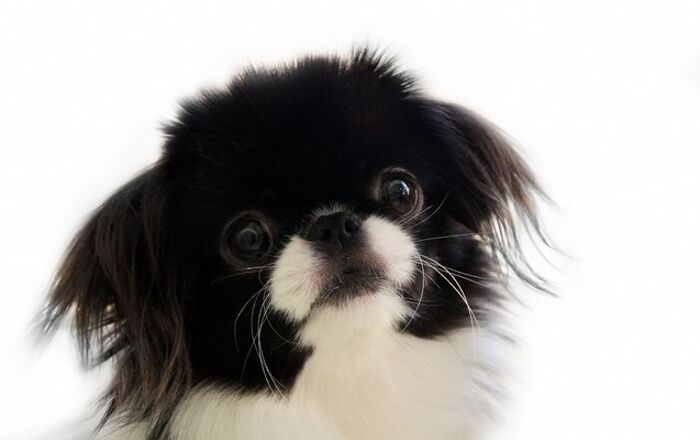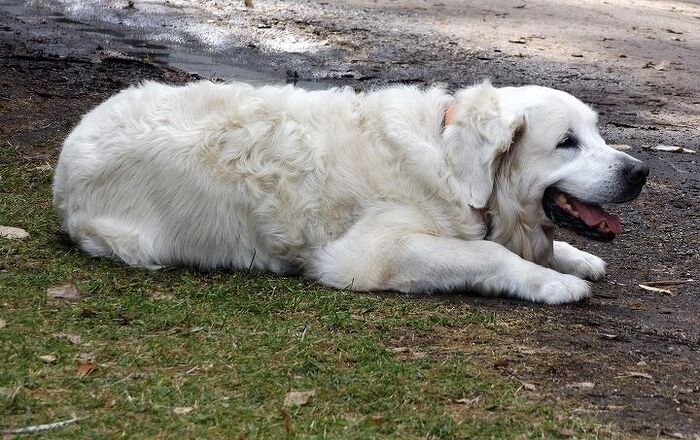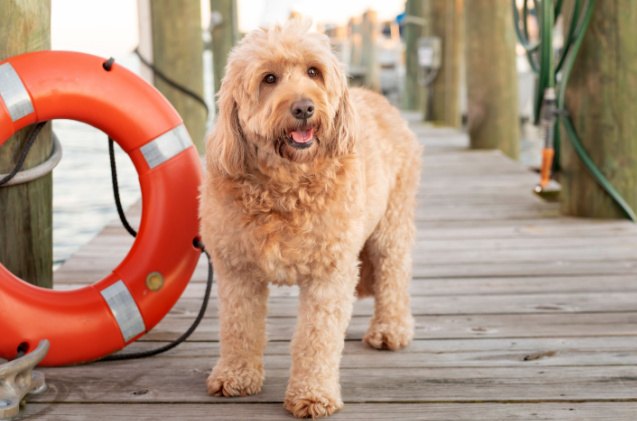
Miniature Goldendoodle Basics
The Miniature Goldendoodle is an exciting and relatively new designer dog breed that combines the best traits of two popular breeds: the Golden Retriever and the Miniature Poodle. While this might not sound like a particularly good combination, the result of this unusual cross is simply perfect, both inside and out. As a result, these doggos are becoming increasingly popular among people who are looking for a pet that is friendly, intelligent, and easy to train.
The Miniature Goldendoodle has a lot to offer to every potential owner. From their goofy antics to the unwavering loyalty and love they have for their owners, these gorgeous dogs are truly a joy to be around. Whether you are a solo owner or want a family pet that will get along with kids, this dog breed will find its place by your side. Thanks to their adaptability, they can thrive in different settings, from urban city environments and apartment living to houses with a backyard where they can play and explore. In this article, we'll take an in-depth look at everything you need to know about the Miniature Goldendoodle, including their history, appearance, temperament, health, care requirements, and more.
Origin
Like most modern designer dog breeds, the Miniature Goldendoodle is a relative newcomer to the scene – a crossbreed that originated in the United States in the late 1990s. Breeders aimed to create a smaller version of the popular Goldendoodle, which is a cross between a Golden Retriever and a Standard Poodle. Naturally, the Miniature Goldendoodle was developed by crossing a Golden Retriever with a Miniature Poodle, which resulted in a dog that is smaller in size but still retains the friendly and intelligent nature of the Golden Retriever and the hypoallergenic, low-shedding coat of the Poodle.
While the Miniature Goldendoodle doesn’t have a long history to speak of, we need only look to their parentage to realize the breed’s many qualities. Both the Poodle and the Golden Retriever are popular, well-known dog breeds with a hefty history behind them. As the name suggests, the Golden Retriever was originally bred for retrieving shot game and fowl, and has its roots in Scotland, in the 19th century. Since then, it has become a popular and very friendly pet dog breed. The Poodle, similarly, has origins in hunting. It was bred as a water dog, used to flush out and retrieve waterfowl. It has its roots in Germany, and possibly dates to the Middle Ages.
Pedigree
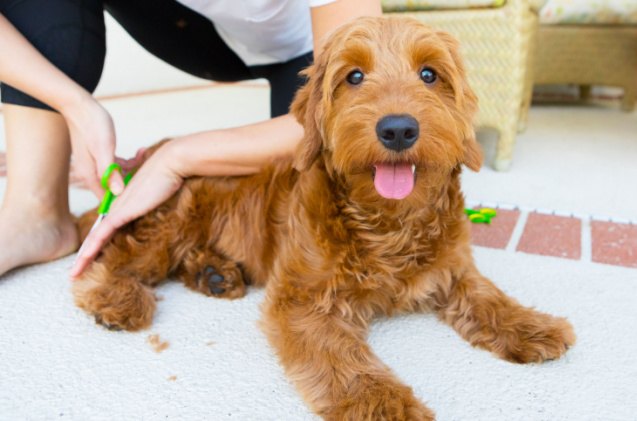
Being a relatively new crossbreed, the Miniature Goldendoodle doesn’t really have a pedigree. Breeders are never 100% certain about the way a new litter would turn out – some puppies might look more like one parent and others could favor the second breed in the mix. Still, there are a few pedigree features that can be determined with certainty, when it comes to the Miniature Goldendoodle. This is a small to medium-sized dog that typically weighs between 15 and 35 pounds and stands between 13 to 20 inches tall at the shoulder. Their coat is slightly wavy or curly and can be a variety of colors, including cream, gold, red, black, and chocolate.
Food/Diet
Food is a very important aspect of the well-being of every dog. In fact, it is the cornerstone of good health. The Miniature Goldendoodle will require a healthy and balanced diet to stay in top shape. High-quality dog food that is appropriate for their size, age, and activity level is recommended. Still, meals should be given in moderation and appropriate servings, in order to avoid overfeeding. Dogs are voracious, and when given a chance, they’ll eat more than is needed. This can turn into obesity, and with that comes a string of problems.
Of course, a healthy diet is all about the nutrients. And one of the most essential nutrients for dogs is protein. It is particularly important for Miniature Goldendoodles as they are an energetic, lean, and active breed. Good sources of protein include high-quality meat, fish, and poultry – these should be the first ingredient on the list. It is important to note that dogs are carnivores and require animal-based protein to stay healthy.
In addition to protein, Miniature Goldendoodles also require a balanced diet that includes plenty of complex carbohydrates, healthy fats, vitamins, and minerals. Carbs provide them with energy, while fats are essential for the absorption of certain vitamins and the maintenance of healthy skin and coat. Vitamins and minerals are necessary for the proper functioning of the body's systems, including the immune system, bones, and teeth.
Training
If you want to be a proud owner of an obedient, fun, and sociable dog, then you should certainly not overlook training. Luckily, Miniature Goldendoodles are intelligent and highly trainable dogs, and with consistent training, they can learn a variety of commands and behaviors, and become good-natured and obedient pets. Of course, it is always best to start training your Miniature Goldendoodle as early as possible, ideally when they are still puppies. And although puppies have a short attention span, they will soak up all new commands eagerly. So, keep those training sessions short and positive, and you will quickly reap good results.
You should keep in mind that harsh methods will never work. Miniature Goldendoodles respond well to positive reinforcement, which means you should always offer praise or treats for a job well done. To ensure good progress, reward your dog immediately when they exhibit a desired behavior, such as sitting or staying, in order to reinforce it.
You should also stay patient and consistent in your training. Don’t do it half-heartedly, risking meager results. Consistency is key when training a dog. Use the same commands and reward system every time you train, and avoid confusing your dog by changing things up. Dogs love routine and repetitions. Also, avoid getting frustrated or angry with your dog, and take breaks when you or your dog becomes tired or frustrated. Arm yourself with plenty of patience, and you’ll have no issues achieving good results.
Weight
Despite being called miniature, these dogs are not entirely tiny. The Miniature Goldendoodle is a small to medium-sized breed and can weigh between 15 and 35 pounds on average. Likewise, their height averagely reaches between 13 to 20 inches tall at the shoulder.
Temperament/Behavior
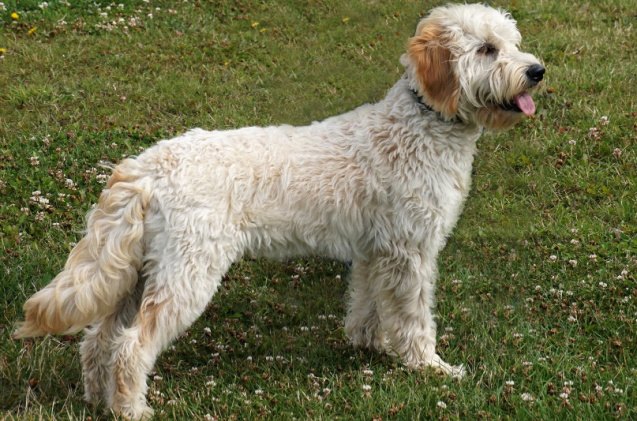
Both Poodles and Retrievers are loved, far and wide, thanks to their fun and affectionate personalities. The Miniature Goldendoodle inherits plenty of those loveable traits and is known for being a friendly and social dog that loves spending time with their family. They are intelligent and easy to train, which makes them great candidates for obedience training and other dog sports. They are also active and energetic and require regular exercise and playtime to stay healthy and happy.
Miniature Goldendoodles are great with children and other animals and make excellent family pets. They have a gentle and affectionate nature and love to cuddle with their owners. They are also highly adaptable and can be comfortable living in a variety of environments, from small apartments to large houses with yards. All this makes them wonderful pets that can be suited for a wide variety of owners. Of course, they will thrive the most in a family setting, where they can be showered with all the fun and affection they can get. In turn, you will get a pet that loves to form strong bonds, entertain, and also to cuddle, and spend some quality time on the sofa. All in all, they are dogs with colorful characters and are super easy to love.
Common Health Problems
The Miniature Goldendoodle is generally a healthy breed, with no major problems that could be considered concerning. Alas, no dog breed is exempt from some health issues during their lifetime – there are certain problems that can affect Miniature Goldendoodles which you should be aware of. Many of these are genetic - meaning that they are inherited from the parent breeds. Some of these potential issues include:
- Hip dysplasia : This is a common genetic condition that affects many dog breeds, including the Miniature Goldendoodle. It occurs when the hip joint doesn't develop properly, which can lead to arthritis and mobility issues.
- Elbow dysplasia : As the name suggests, this issue is similar to hip dysplasia, but affects the elbow joint instead of the hip joint.
- Eye problems : Miniature Goldendoodles can be prone to several eye problems, including cataracts, progressive retinal atrophy (PRA), and glaucoma. This is inherited from the Poodle parent breed.
- Ear infections : Like many dogs with floppy ears, Miniature Goldendoodles can be prone to ear infections. Regular ear cleaning can help prevent these infections.
In addition to these health issues, Miniature Goldendoodles can also be prone to certain allergies and skin problems. It's important to keep an eye on your dog's skin and coat and to seek veterinary advice if you notice any unusual symptoms. Of course, none of these issues will happen for certain. It is adamant that you take good care of your pet, in every way possible. This includes a good, healthy diet, plenty of exercise and affection, and regular veterinary checkups. With all this ensured, your pet will thrive and be happy.
Life Expectancy
Miniature Goldendoodles typically have a lifespan between 10 and 15 years. This is quite a solid number, considering that the average maximum lifespan for most dog breeds is 15 years. Still, this longevity can vary, depending on genetics and other factors.
Exercise Requirements
Regular exercise is important for every dog. Some are more energetic, while others – not so much. The Miniature Goldendoodle falls somewhere in between but is certainly not a lazy dog. They have plenty of energy and a fun-loving character! As fairly active dogs, Miniature Goldendoodles will require moderate exercise to stay healthy and happy. They should be taken on daily walks or runs, and also need plenty of playtime and mental stimulation. A fenced yard is ideal for the Miniature Goldendoodle to run and play in, but they can also adapt to apartment living as long as they receive enough physical and mental stimulation. Without enough space and a chance to exercise, your pet can develop a string of behavioral issues that can greatly affect their health and well-being.
AKC
Being a designer dog breed, the Miniature Goldendoodle is not recognized by the AKC. They are not considered a purebred type of dog, and as such cannot become a part of that strict registry. There are, however, some registries that are oriented toward designer dogs, crossbreeds, and hybrids, and the Miniature Goldendoodle is found in several of these. Currently, the breed is recognized by the Dog Registry of America, Inc, Goldendoodle Association of North America, and Goldendoodle Registry.
Coat
Proper coat hygiene is a big part of caring for your pet. The coat of the Miniature Goldendoodle isn’t exactly short or smooth, and as such it requires regular grooming to prevent matting and tangling. Taking after the Poodle, these dogs generally have fluffy and bushy coats. Brushing at least twice a week is recommended, and they will also need to be professionally groomed every 6 to 8 weeks, or as needed. Luckily, Miniature Goldendoodles don't shed much, which makes them a great choice for people with allergies. Still, there could be a few extra loose hairs during the shedding season, but not as nearly as much as with some other breeds.
Puppies
All puppies are super cute when they first arrive in this world and the Miniature Goldendoodle is no exception. But they are also super fragile and delicate in their early puppyhood. You should avoid large crowds and eager hands during those first few days, but as soon as the fragile period is over, you should begin with an important part of your life – socialization.
With socialization, you will ensure that your dog grows up to be sociable, fun, peaceful, and obedient without any negative behavioral issues. In the long run, this will prove to be very important and you will be glad you put in the effort to ensure early exposure to other animals and strangers. Of course, don’t forget about basic training, either. Potty training, obedience training, leash training, and so on – it’s best to start early to make sure your pet adopts this new knowledge with ease and on time.

